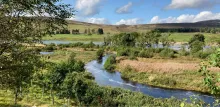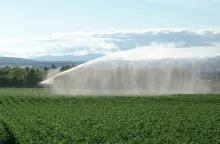Scottish Marine Habitats Could Help Tackle Coastal Flooding and Erosion
A recently published project funded by the Centre of Expertise for Waters (CREW) has shown that Scotland’s coastal habitats, such as kelp forests and seagrass beds, could play a bigger role in protecting communities from flooding and erosion.




